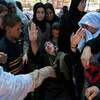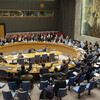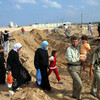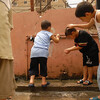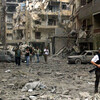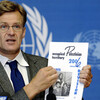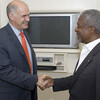
How to Watch the War on the Web
26 July 2006
You too can be a wartime news editor. With the ubiquity of streaming video on the Internet and advances in search engines, RSS and self-publishing tools, anyone can bypass the editorial hierarchies of Western news organizations and assemble a personal newscast of the Israeli-Hezbollah war. You can pick and choose from multiple news sources as a way to confirm your own point of view. Or you can access the many other points of view regarding a complex and deadly conflict. The point is that watching the war on the Web can give you a very different — and potentially more complete — picture of the conflict and its causes than if you rely on any one news source or perspective. Read more about How to Watch the War on the Web

